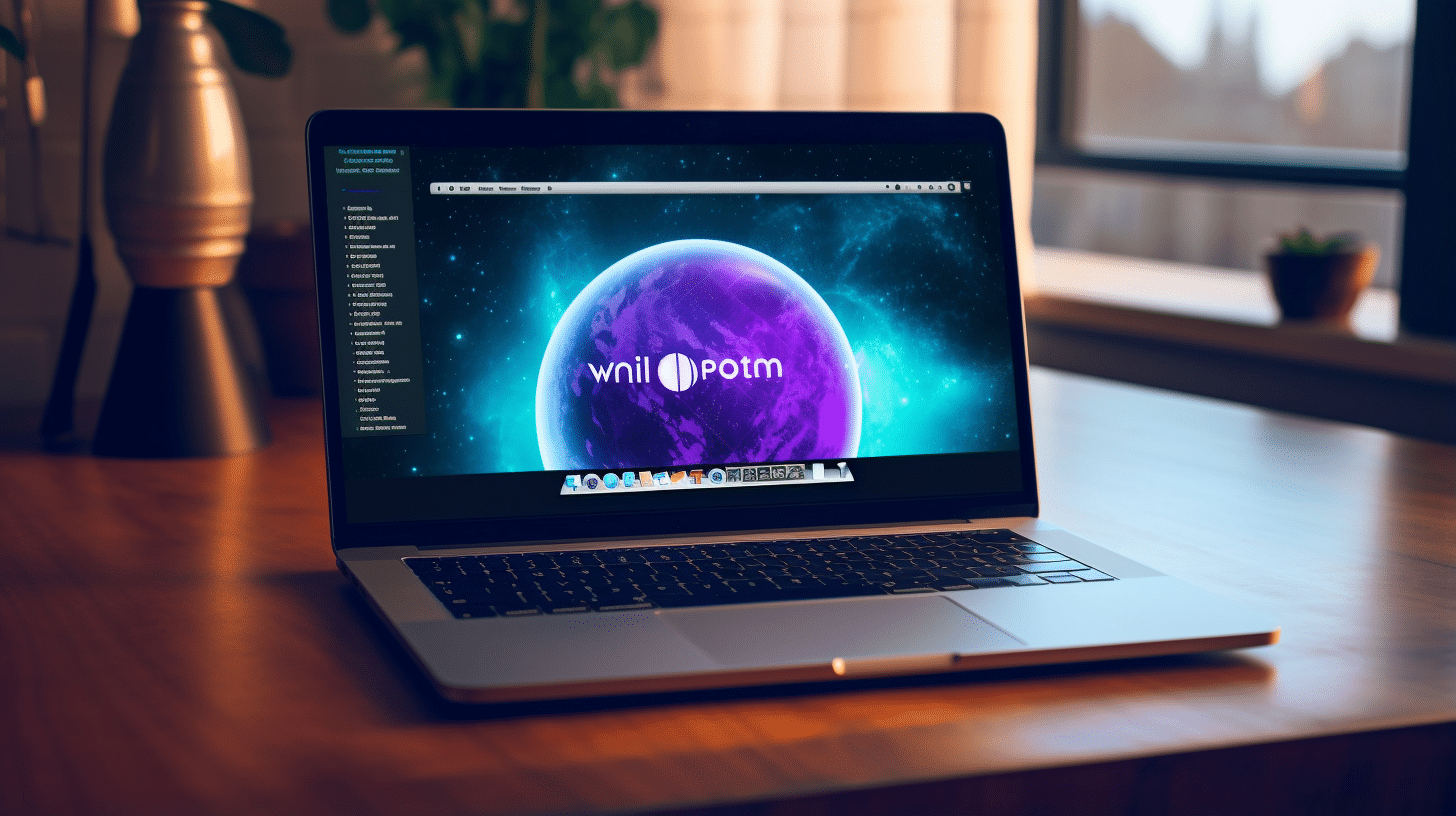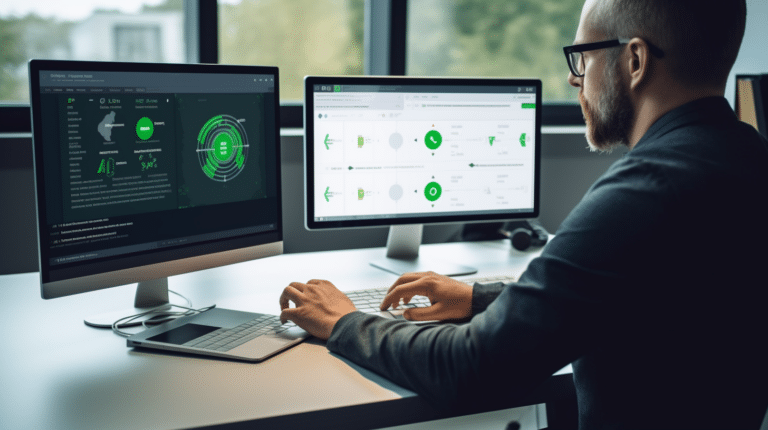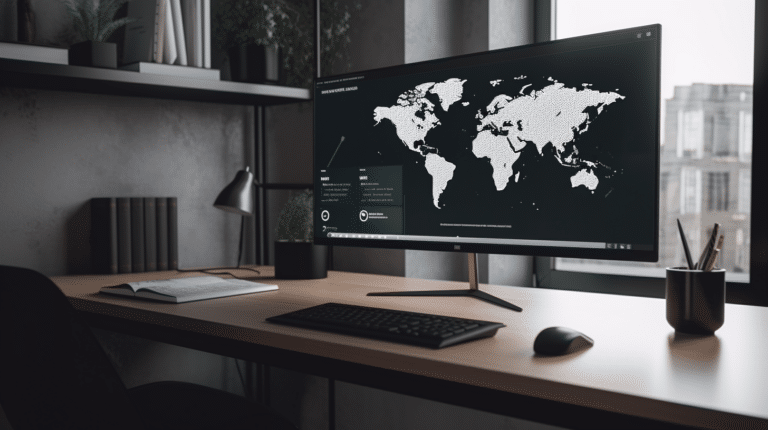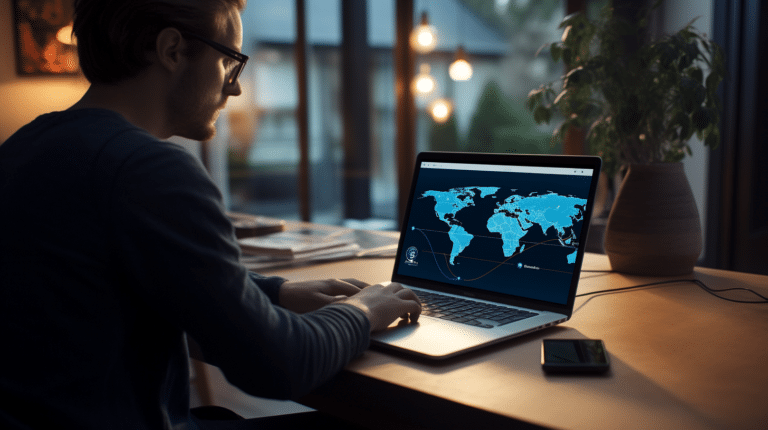Virtual Private Networks (VPNs) have gained popularity in recent years due to the increasing need for online privacy and security. As the digital landscape evolves, VPNs offer users the ability to protect their personal information and maintain anonymity while browsing the web. However, a common question that arises is whether VPNs are truly safe and if there are any potential risks involved in using them.
VPNs work by creating a secure, encrypted tunnel between the user’s device and the VPN server, effectively hiding the user’s Internet Protocol (IP) address and encrypting their internet traffic. This helps prevent eavesdropping, unwanted surveillance, and even hacking attempts. While VPNs can provide a layer of security, it is essential to be aware of the factors that contribute to VPN safety and understand the possible risks associated with their use.
Key Takeaways
- VPNs secure internet traffic and protect user privacy, but safety depends on choosing a reliable provider.
- Potential risks involve data leaks, malware, and usage logs, which can compromise your privacy.
- Maintaining online safety requires a multifaceted approach, including VPNs, strong passwords, and up-to-date software.
Why VPNs Are Used
VPNs, or Virtual Private Networks, have become increasingly popular tools for individuals and businesses alike. The primary reason behind their widespread adoption is the enhanced privacy and security they offer. By creating a secure and encrypted tunnel between a user’s device and the VPN server, these tools effectively shield the user’s online activity from prying eyes, protecting sensitive data from cybercriminals, secure electronic transactions, and maintaining user anonymity.
In addition to security, VPNs play an essential role in circumventing censorship. In countries with restrictive internet policies or content limitations, VPNs allow users to bypass geographic restrictions and access blocked websites and content, granting them a degree of online freedom. By connecting to a server in a different location, the user’s visible IP address changes, making it appear as though they are accessing the internet from another country.
Another significant benefit of using a VPN is anonymity. By masking the user’s actual IP address and routing their internet traffic through the VPN server, users can maintain their online anonymity, making it difficult for third parties to monitor or track their online actions. This level of anonymity is particularly crucial for whistleblowers, journalists, or individuals in oppressive regimes, where the consequences of being identified can be severe.
Moreover, VPNs enable businesses to create secure remote connections for their employees. By using a VPN, remote workers can access their company’s internal network and resources securely without the risk of unauthorized access or data breaches. This capability has become a necessity in the era of remote work, as businesses continue to prioritize the safety of their networks and sensitive information.
In summary, VPNs are used to provide enhanced privacy, security, censorship avoidance, anonymity, and secure connections for both individual and business users, making them a vital tool in today’s interconnected world.
Factors Affecting VPN Safety
Encryption Techniques
The safety of a VPN largely depends on the encryption techniques used to secure data. Strong encryption ensures that the data transmitted through a VPN is not easily intercepted or deciphered by malicious parties. Common encryption methods include AES-256 and RSA-2048, which are considered to be highly secure. It’s essential to choose a VPN provider that offers robust encryption protocols to protect your privacy and maintain confidentiality.
Server Location and Security
Another factor affecting VPN safety is the location and security of the servers used by the VPN provider. Servers in jurisdictions with strict data protection laws are generally more reliable as they adhere to higher security standards. Additionally, the physical security of the server locations should not be overlooked. VPN providers must secure their server facilities to prevent unauthorized access, tampering, or data theft. Ensure that the VPN provider you choose has a strong commitment to server security and operates servers in privacy-friendly locations.
Privacy Policies and Data Logging
Privacy policies and data logging practices greatly influence the safety of a VPN. A stringent privacy policy indicates that the VPN provider values user privacy and will not misuse or disclose user data. In contrast, vague or unclear privacy policies may signal that the provider may not prioritize user privacy.
It’s crucial to choose a VPN provider with a strict no-log policy. No-log VPNs don’t store user data like IP addresses, browsing history, or connection timestamps. This information can be exploited by malicious actors or even government surveillance if it’s logged. By choosing a no-log VPN, you minimize the risk of your data being accessed by unauthorized parties.
In conclusion, the safety of a VPN depends on various factors, including encryption techniques, server location, security, privacy policies, and data logging practices. By selecting a VPN provider that prioritizes these aspects, you can enjoy a safer, more secure VPN experience.
Potential Risks of Using VPNs
Malware and Cybercriminal Threats
While VPNs can provide a secure way to access the internet, they are not immune to cybercriminal threats and malware. Some VPNs can become infected with malware, which can compromise your security and privacy. To minimize the risks, it’s essential to choose a reputable VPN provider and constantly update your software to the latest version. Additionally, it’s crucial to avoid downloading VPN apps from untrusted sources, as they might contain malicious software.
Free VPNs vs Paid VPNs
When it comes to VPNs, free options might seem attractive, but they can come with potential risks. Free VPNs are often less secure than paid alternatives and may be more susceptible to data breaches. Some free VPNs have been known to sell user data to advertisers, which defeats the purpose of using a VPN for privacy. On the other hand, paid VPNs usually offer more robust security features and a more reliable service. Investing in a reputable VPN provider is crucial for ensuring your online security and protecting your personal information.
Vulnerability to Data Leaks and Breaches
VPNs are designed to protect your data as it travels through the internet, but they are not invulnerable to data leaks and breaches. Some VPNs may have weak encryption protocols, exposing your information to potential hackers. To minimize the likelihood of data leaks, it’s essential to choose a VPN provider that uses strong encryption methods and follows privacy best practices. Additionally, using a VPN with a kill switch can help protect your data in the event of a sudden disconnection.
In conclusion, VPNs provide a valuable level of security, protection, and privacy for internet users. However, it is crucial to be aware of the potential risks associated with VPNs and take the necessary precautions to minimize these threats. By choosing a reputable VPN provider, keeping your software up to date, and being cautious of free VPNs, you can greatly reduce your vulnerability to malware, data breaches, and leaks.
Choosing a Safe and Reliable VPN
Virtual Private Networks (VPNs) are widely used for enhancing security and privacy while browsing the internet. However, not all VPNs are created equal, so it’s essential to choose a safe and reliable provider. In this section, we will help you identify important features to look for in a VPN and recommend some well-known and reputable VPN providers.
Important Features to Look For
When selecting a VPN that prioritizes security and privacy, consider the following features:
- Encryption: Strong encryption protocols ensure that your data remains secure and protected from prying eyes. Look for a VPN provider that offers industry-standard encryption like AES-256.
- No Logs policy: Opt for a VPN that respects your privacy by not keeping any logs of your online activity.
- Kill Switch: This feature ensures that your internet connection is automatically cut off if the VPN connection drops, preventing accidental data leaks.
- DNS Leak Protection: VPNs should provide DNS leak protection, ensuring that your DNS queries are routed through the VPN server and not exposed to your ISP.
- Secure VPN Protocols: OpenVPN and IKEv2/IPsec are widely regarded as secure VPN protocols. Avoid VPNs that solely rely on PPTP or L2TP/IPsec, which have known security vulnerabilities.
Well-Known and Reputable VPN Providers
Several VPN providers have built a solid reputation for delivering secure and reliable services for their users. Some of the top choices include:
- NordVPN: NordVPN is a popular and highly recommended VPN provider, known for its strong security features such as AES-256 encryption, a strict no-logs policy, and an automatic kill switch. They also offer obfuscated servers for added privacy and support for multiple secure protocols.
- TunnelBear: TunnelBear is a user-friendly VPN provider with a strong focus on security and privacy. They offer AES-256 encryption, a no-logs policy, and secure VPN protocols like OpenVPN and IKEv2/IPsec. TunnelBear also goes through independent security audits to ensure the best possible service for their users.
Both NordVPN and TunnelBear are reliable choices for a secure and private online experience. By prioritizing security features, a no-logs policy, and selecting a reputable provider, you can ensure that your online privacy is well-protected when using a VPN.
Securing Your Online Activities Beyond VPNs
While VPNs play a crucial role in protecting your online privacy, it’s important to incorporate additional security measures to further safeguard your digital activities. In this section, we will discuss some essential tools and best practices to enhance your online security.
Antivirus Software and Password Managers
Antivirus software is an indispensable tool in protecting your devices against malware, viruses, and other malicious threats. Regularly updating your antivirus software ensures that you’re well-equipped to combat the latest cyber threats. Some reputable antivirus software options include Norton, McAfee, and Avast.
Password managers offer a secure solution for storing and managing complex passwords. By using a password manager, you can generate unique, strong passwords for each of your accounts and ensure that they’re safely stored. Examples of reliable password managers are LastPass, Dashlane, and 1Password.
Two-Factor Authentication and Secure Browsing Practices
Two-factor authentication (2FA) provides an additional layer of security by requiring a secondary form of verification, such as a code sent to your mobile device or a biometric scan. Enabling 2FA on your accounts significantly reduces the risk of unauthorized access.
Secure browsing practices include:
- Ensuring websites you visit use HTTPS connections, as they encrypt data transmitted between your browser and the server.
- Regularly updating your browsers to their latest versions to benefit from the most up-to-date security features.
- Avoiding clicking on suspicious links or downloading unverified files.
- Being cautious when connecting to public Wi-Fi networks, as they may not be secure.
- Configuring your browsers’ privacy settings to limit the amount of personal information shared with websites.
In conclusion, complementing VPN usage with additional tools and practices such as antivirus software, password managers, two-factor authentication, and secure browsing practices will significantly enhance your overall online security.
Frequently Asked Questions
Are there risks associated with VPN security?
Yes, there are risks associated with VPN security. While VPNs provide secure encrypted communication and are designed to keep your data private and secure, they are not immune to all threats. Cybercriminals, hackers, and even government entities may still attempt to break into VPN connections. Proper implementation and continuous monitoring of a VPN network are essential to mitigate these risks.
Can a VPN guarantee complete safety and privacy?
No, a VPN cannot guarantee complete safety and privacy. Although VPNs significantly enhance your online security by encrypting your data and masking your IP address, they are not foolproof. Cybersecurity threats and technology continue to evolve, so it is essential to stay informed, regularly update your VPN software, and choose a reputable VPN provider.
What are the potential issues with using a free VPN?
Free VPNs may have several potential issues, including inadequate security measures, limited data usage, compromised performance (such as slower connection speeds), and invasive advertising. Furthermore, some free VPNs may be involved in data harvesting or selling user data to third-party advertisers, compromising the overall purpose of using a VPN for privacy and security.
What factors should be considered when determining VPN safety?
When determining the safety of a VPN, consider factors such as the provider’s reputation, encryption standards, protocol options, and privacy policy. Additionally, it is crucial to evaluate the country’s jurisdiction in which the VPN provider operates, as this may influence data retention laws and government access requests.
What performance differences can be expected between paid and free VPNs?
Paid VPNs generally offer better and more consistent performance compared to free VPNs. They often provide faster connection speeds, more server locations, better encryption, and customer support. Free VPNs might limit bandwidth, impose data usage restrictions, and lack certain features or server locations.
Are certain VPN providers safer than others?
Yes, certain VPN providers offer greater safety and security than others. The degree of safety depends on factors such as their encryption methods, protocols, logging policies, and overall commitment to user privacy. It is essential to research VPN providers thoroughly before choosing one to ensure that they prioritize their users’ privacy and online security.
Conclusion
VPNs play a crucial role in enhancing cybersecurity and protecting online privacy. Although users generally feel safe using a VPN, it is important to choose a reliable service, taking into consideration factors such as encryption protocols, data logging policies, and jurisdiction. A trustworthy VPN service can help secure your internet connection by creating an encrypted tunnel between your device and the VPN server, reducing the risks of data theft and interception.
When it comes to VPN performance, studies have shown that certain technologies like MPLS VPN can provide lower latency and packet loss, resulting in a more efficient and safe communication. Furthermore, various VPN protocols exist, such as WireGuard, which have been designed to offer robust security and improved connection speeds.
As the internet continues to evolve and cyber threats become more sophisticated, it is essential for individuals and businesses alike to adopt measures like VPNs to safeguard their information and ensure a secure browsing experience. In conclusion, using VPNs can significantly contribute to enhanced cybersecurity and online privacy, provided that users carefully choose and configure their VPN service, taking into account the factors mentioned above.





